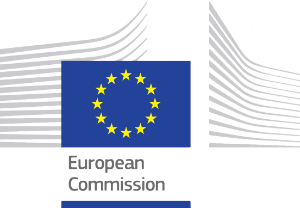The Pafos Aphrodite Festival has been established as a cultural event of international recognition with high preconditions for artistic performance and administrative efficiency. It takes place every year in early September since 1999, with great operas.
In the context of the Festival the following operas were staged: Aida (1999), Carmen (2000), Nabucco and the drama Zorba the Greek (2001), Turandot (2002), Tosca (2003), Rigoletto (2004), La Traviata (2005), Un Ballo in Maschera (2006), Il Trovatore (2007), Madama Butterfly (2008), Lakmè (2009), La Bohème (2010), Les Contes d’Hoffmann (2011), Otello (2012), L’Elisir d’Amore (2013), Cosi Fan Tutte (2014), La Cenerentola (2015), Don Giovanni (2016), Die Entführung aus dem Serail (2017) and Il Barbiere di Siviglia (2018).
Usually, the event takes place with the participation of the Cyprus Symphony Orchestra and Cypriot soloists who are selected via auditions held by the production and who satisfy the relevant requirements for participation in productions of high artistic level.
Each performance has a minimum capacity of 2.500 seats on metal tiers amphitheatrically arranged. The stage is constructed in the area in front of the Medieval Castle which forms part of the stage scenery.
The founding Sponsors of Pafos Aphrodite Festival 2018 are the Ministry of Education and Culture and the Cyprus Tourism Organization.
The Festival promotes the intangible heritage of opera and related CCIs, attracting cultural tourism.

ReInHerit Digital Hub
Pafos Aphrodite Festival, Cyprus
Author(s)
ECTN
Terms of reuse
CC BY 2.0
Type of best practice
Audience and Local Community Engagement
Keywords
festival, intangible heritage, opera
Theme
Management
The Pafos Aphrodite Festival has been established as a cultural event of international recognition with high preconditions for artistic performance and administrative efficiency. It takes place every year in early September since 1999, with great operas.
Organisation in charge of best practice
Pafos Municipality
Location
Pafos, Cyprus
Dates
1999 - 2018
Description
Links
Resources needed
Each production costs about 250000 EUR with half the costs covered by sale of tickets and the rest through sponsorships. The organisers are Pafos Aphrodite Festival Cyprus (PAFC) with limited but effective human resources (3 persons), supported by Pafos Municipality and the Pafos Tourism Board.
Challenges encountered
n/a
Evidence of success
Pafos Aphrodite Festival has completed 20 years of successful course. The 3-day performances are sold out every year, with high quality of performing and great interest by an international audience of holiday-makers and visitors. The event has attracted thousands of spectators over the years. The imposing Medieval Castle of Paphos under the starry sky and the beauty of the vast sea forms a perfect backdrop for opera performance. The event attracts sponsors that make it financially possible.
Potential for transfer
Pafos Aphrodite Festival constitutes an annual cultural event organised by PAFC at the Square of the Medieval Castle in Pafos (Kato Pafos Harbor) presenting three performances of an opera work. This event offers great potential for learning by and transfer to other regions and cities, given that the opera productions are imported from well established locations with long tradition on opera. The setting and the international audience of holiday-makers and visitors can be replicated in other destinations to enhance the role of intangible heritage in sustainable cultural tourism development and promotion. The means required to organise such an event are: - a dynamic team of both cultural and tourism professionals - a strong leadership by local/regional authority policy-makers - artistic capacity to select the opera company every year - financial support through sponsorship and ticket sales - effective marketing, and - involvement of the local community and stakeholders.
Further Information
n/a
Get in touch
Click here to send us an email, if you have any question or comment on this best practice.
